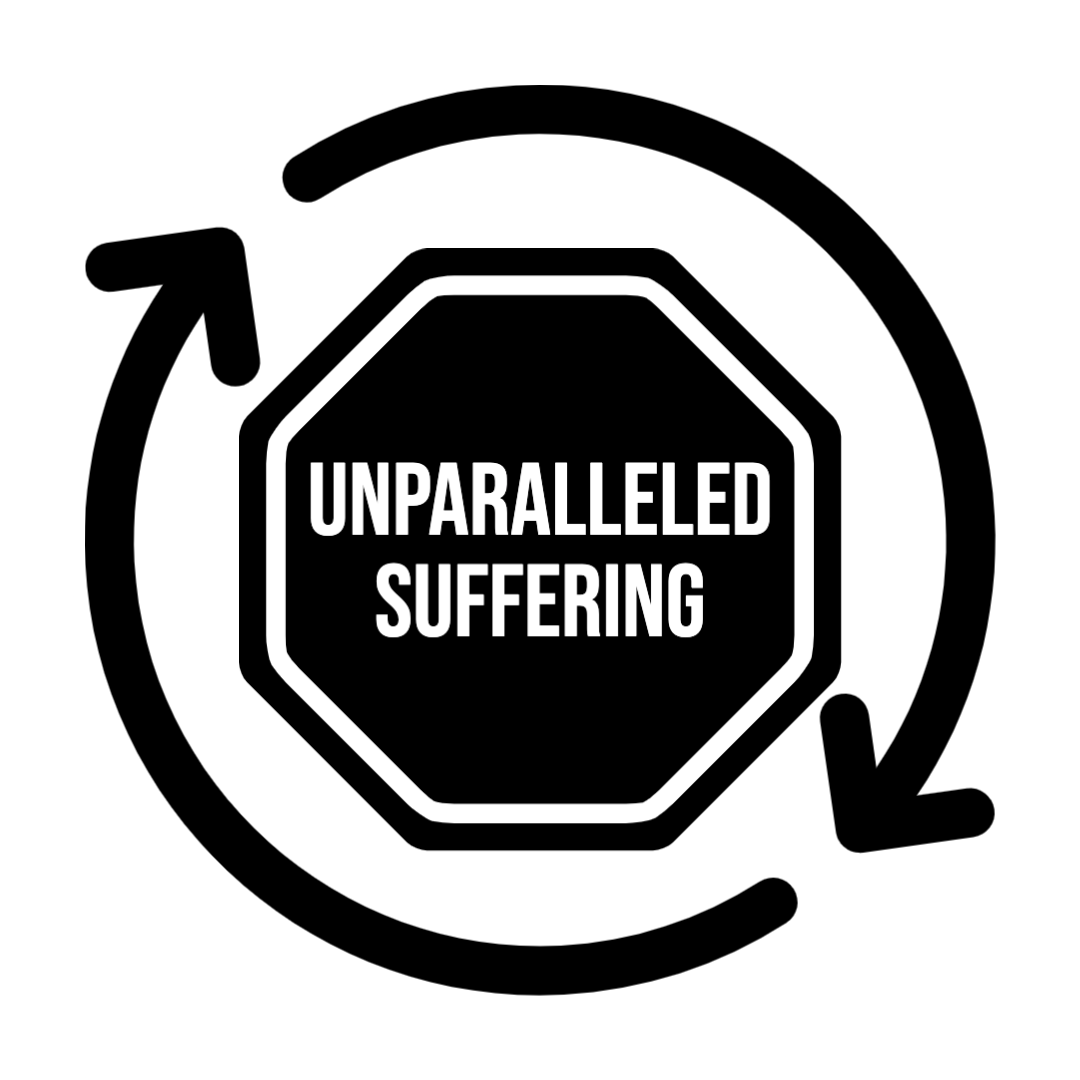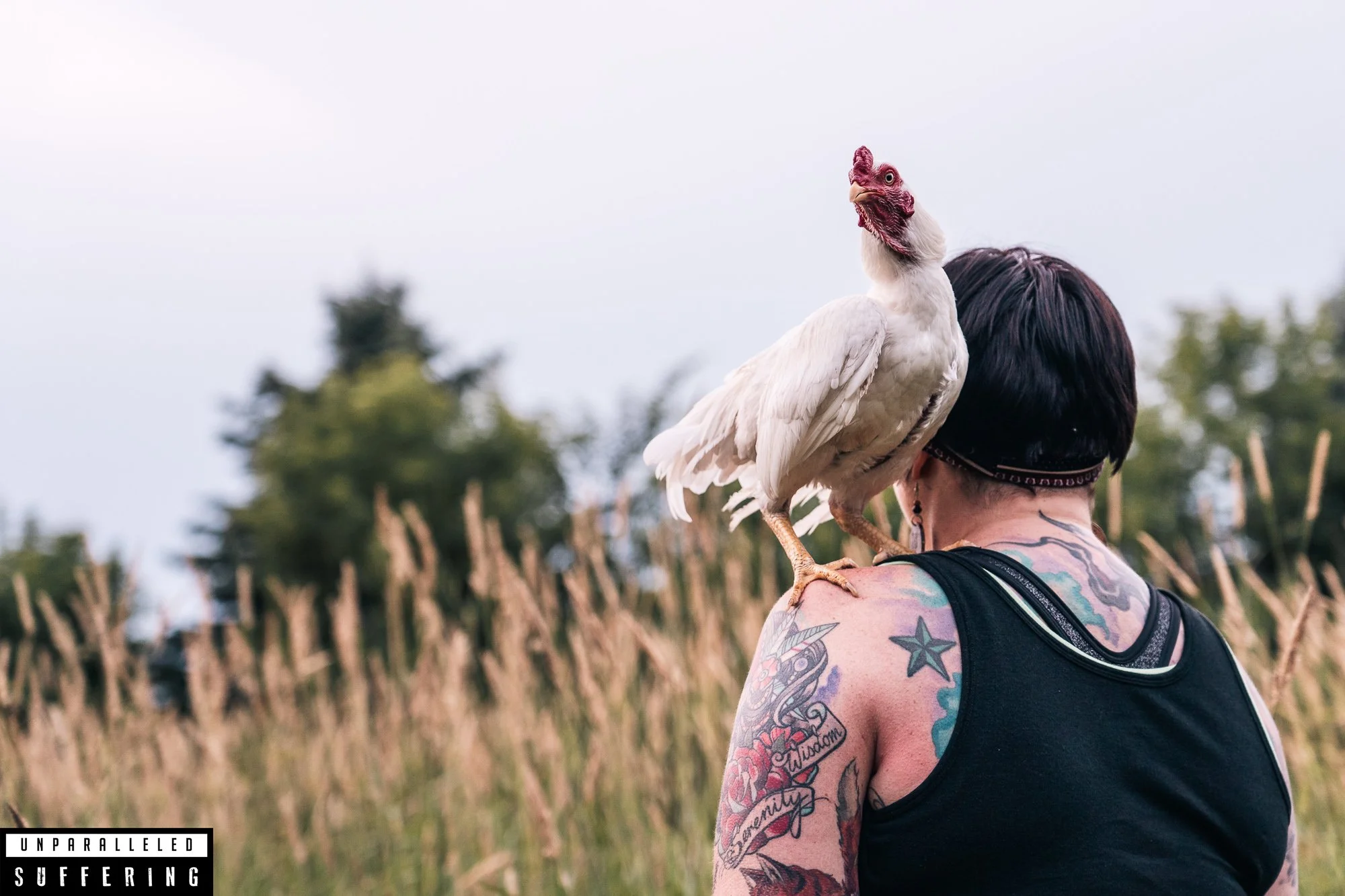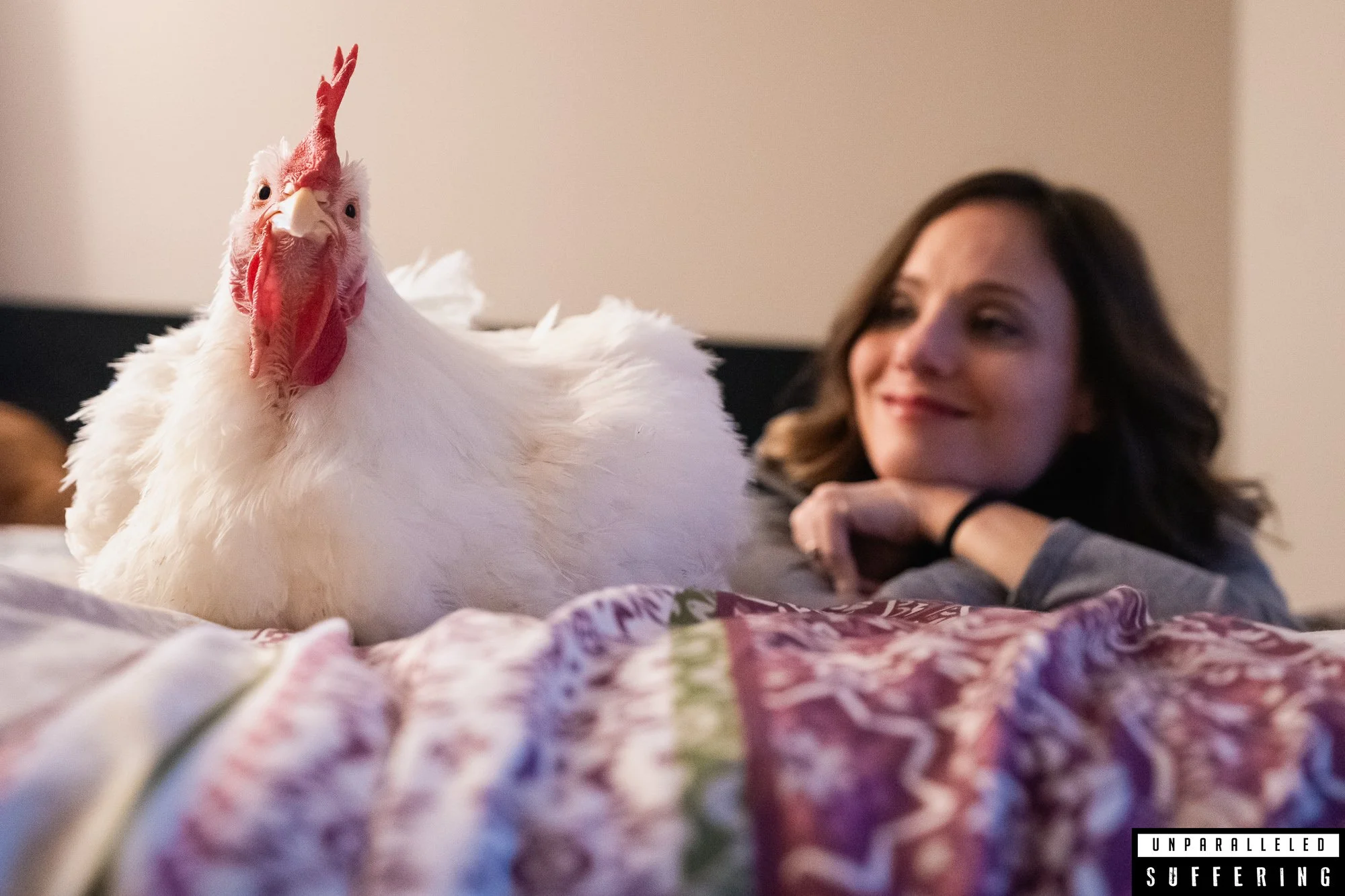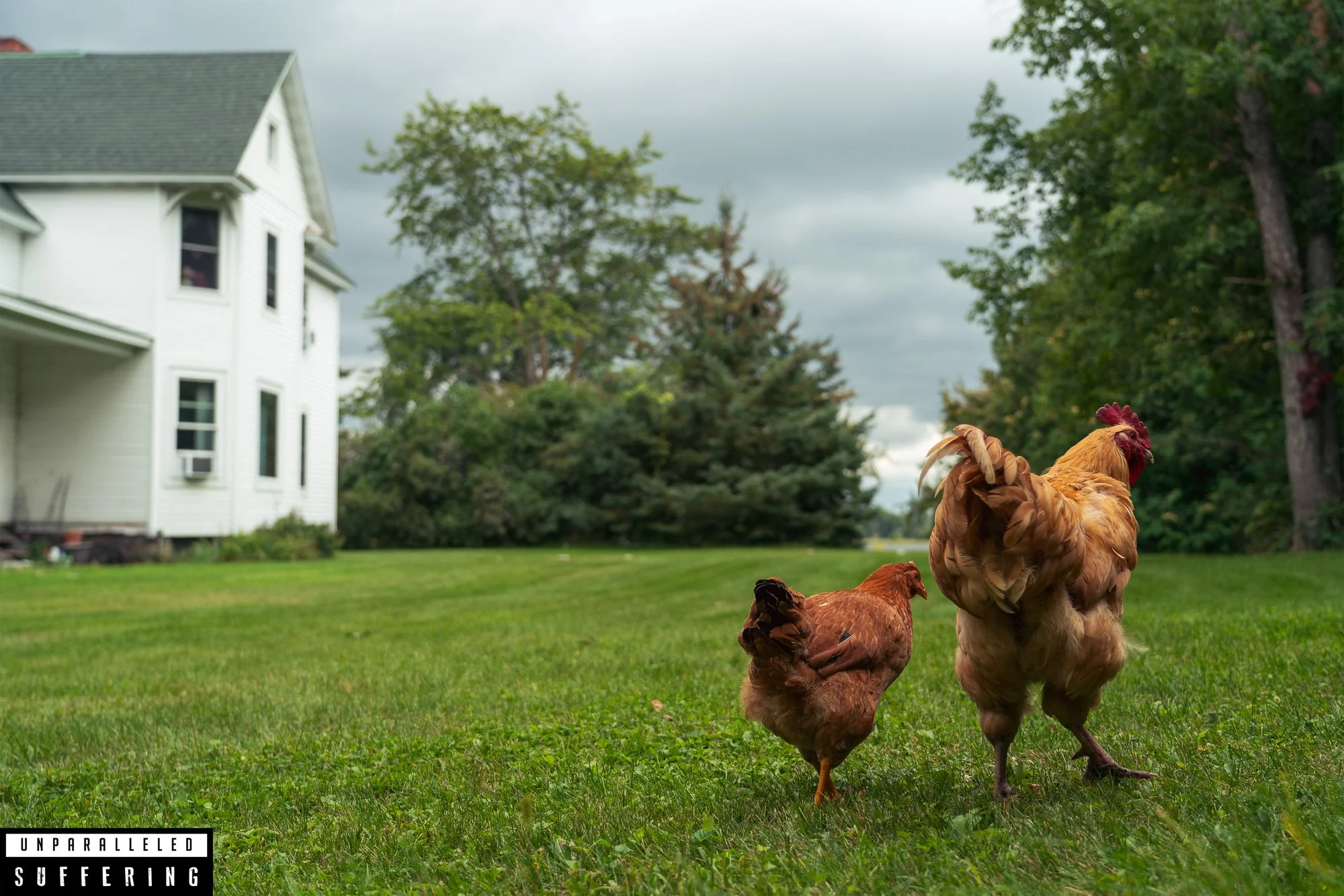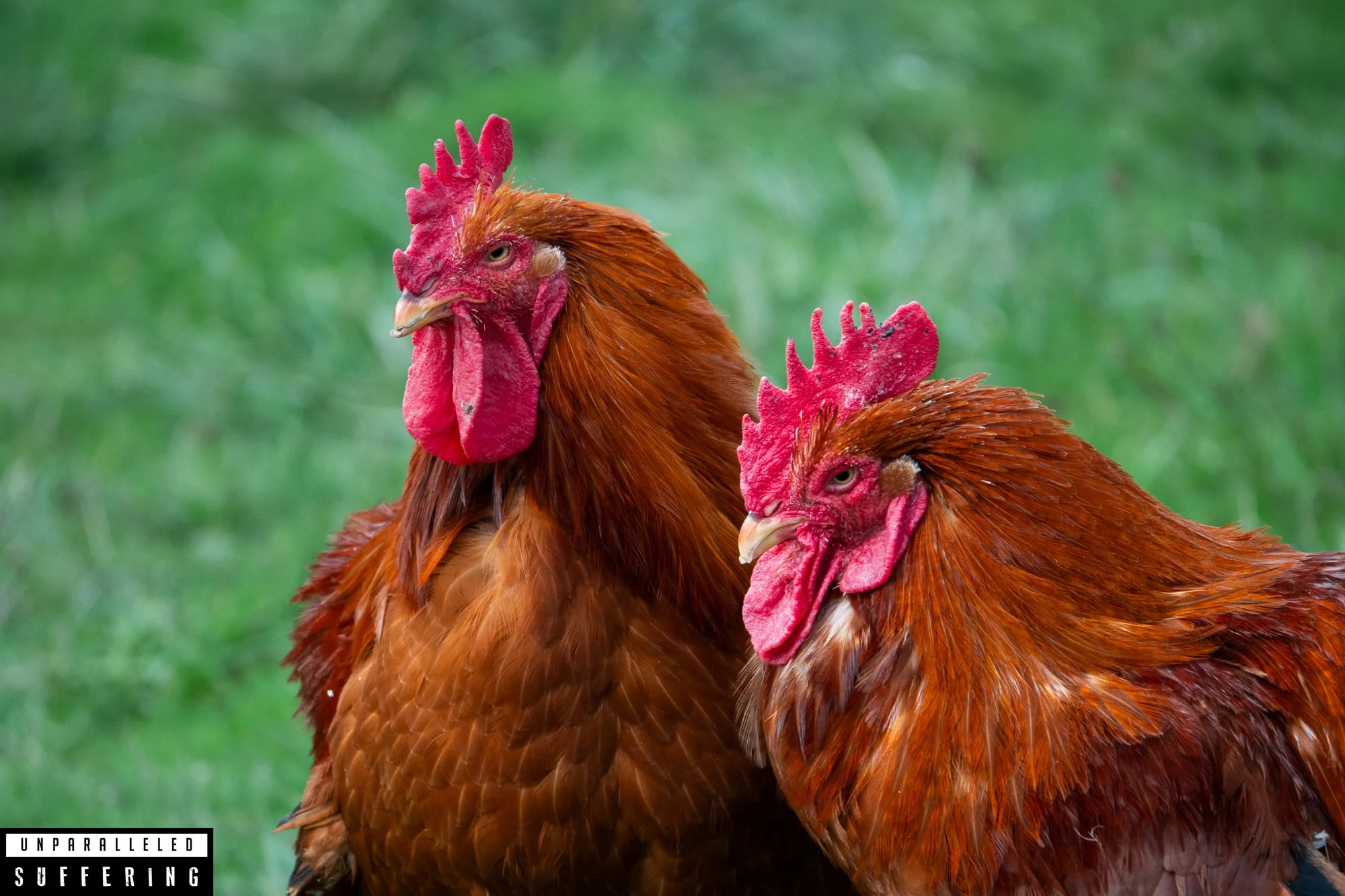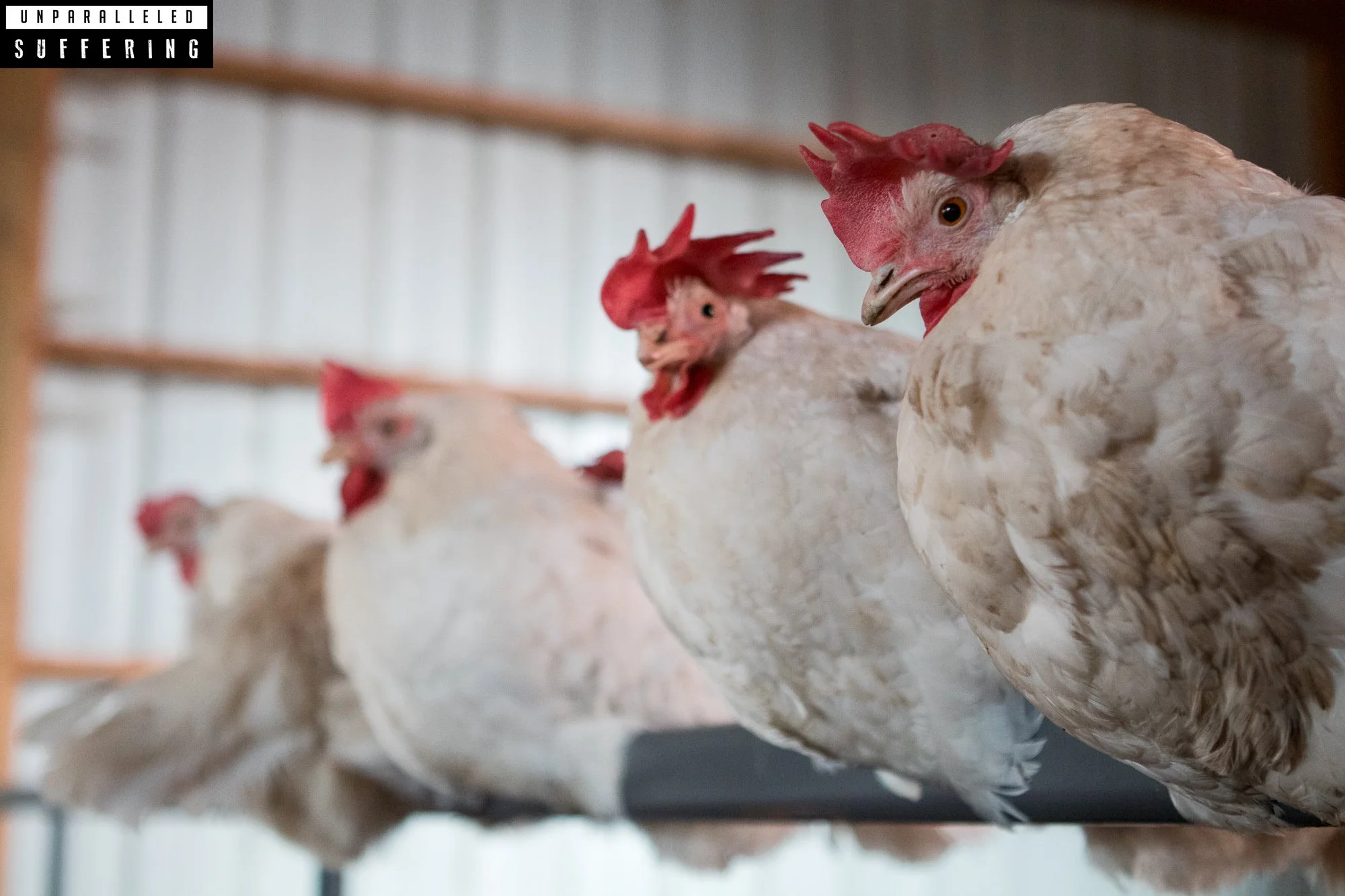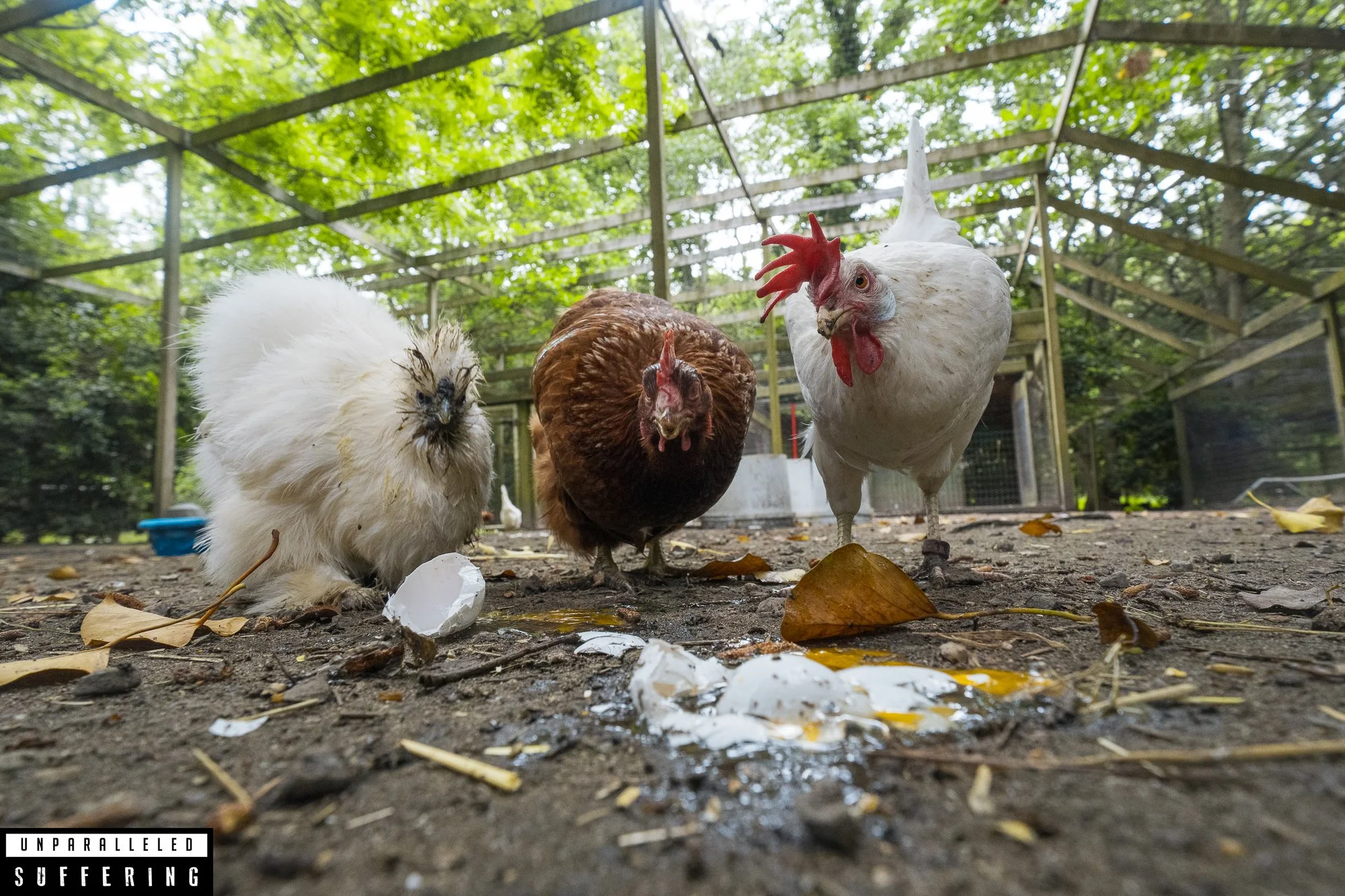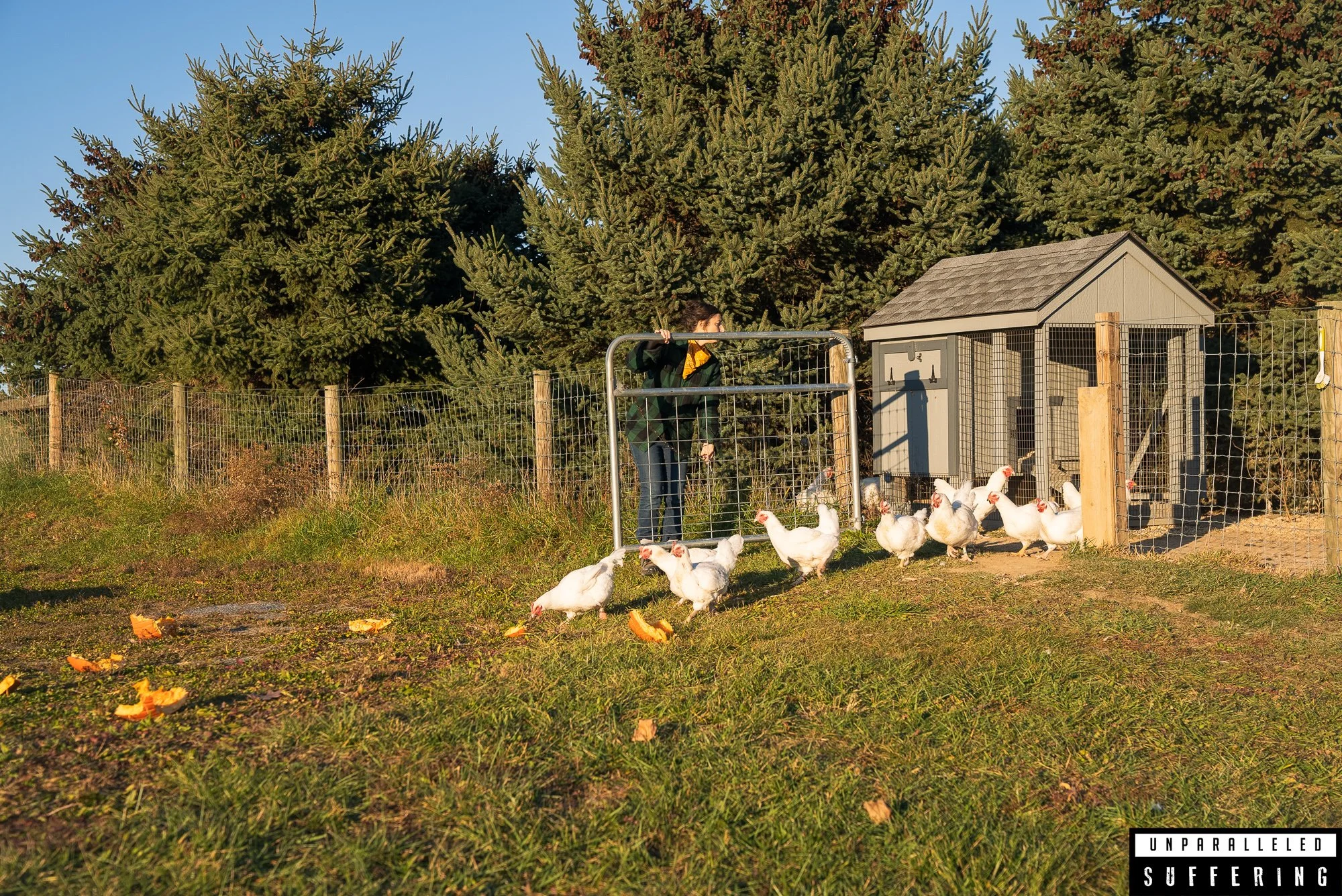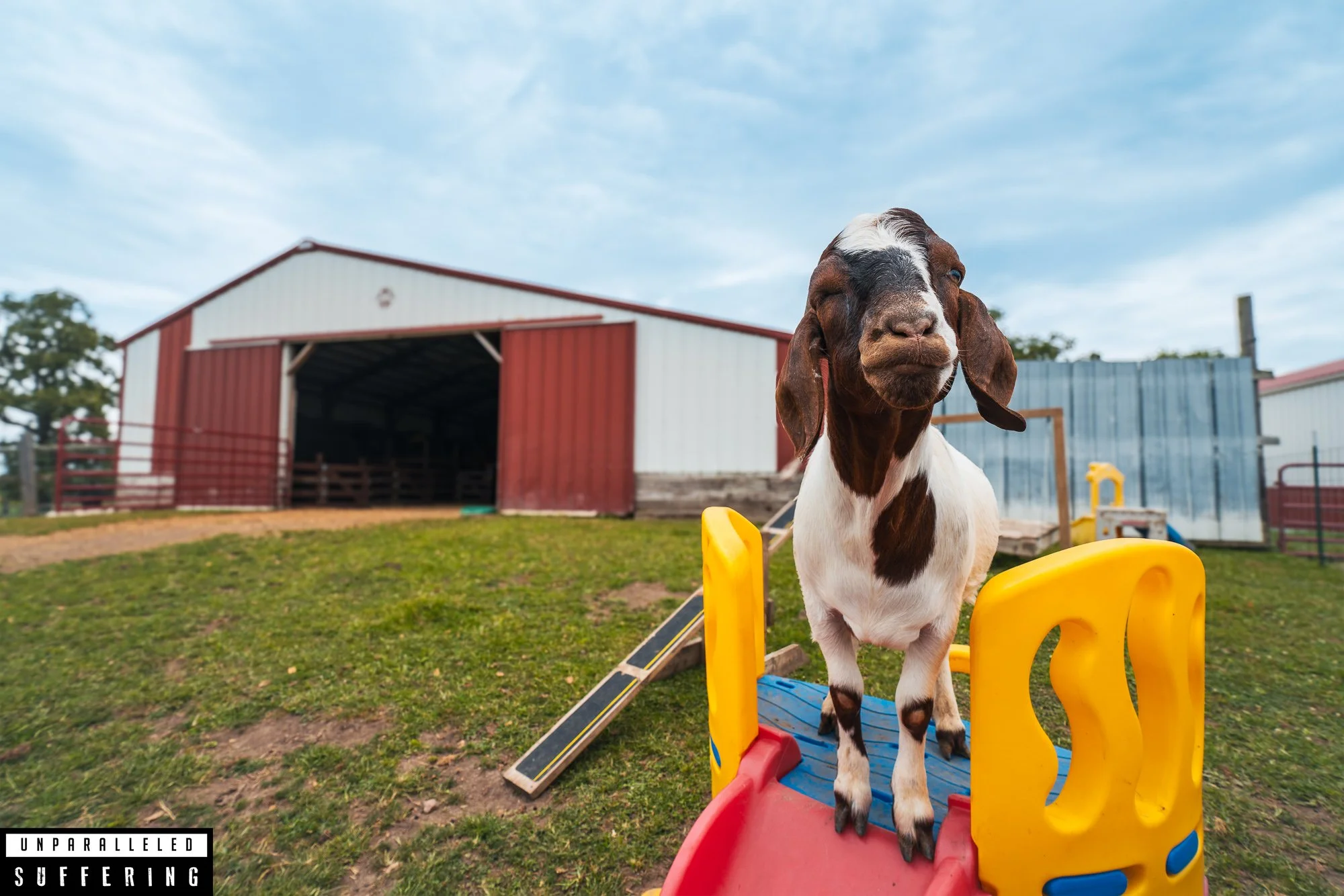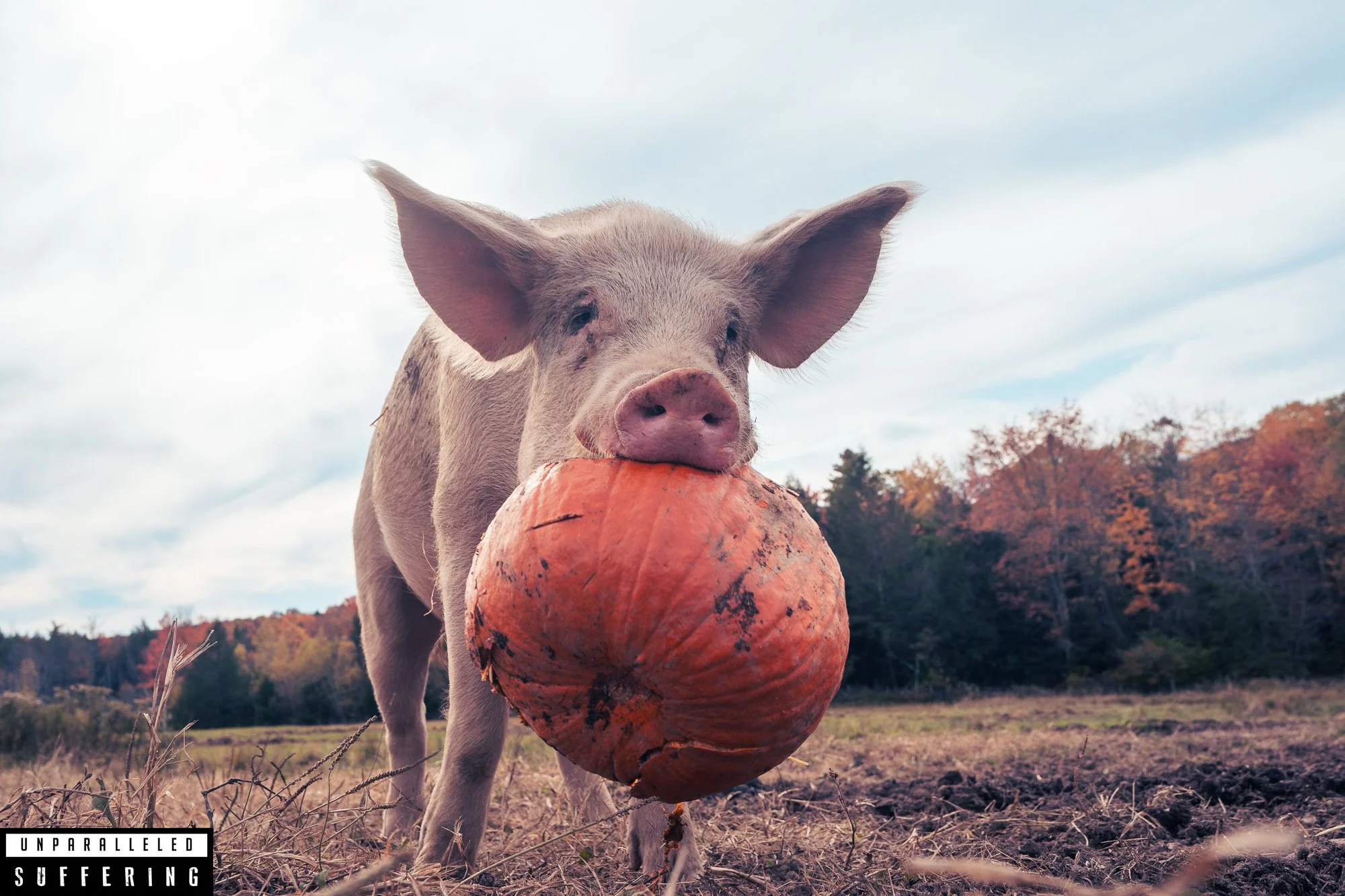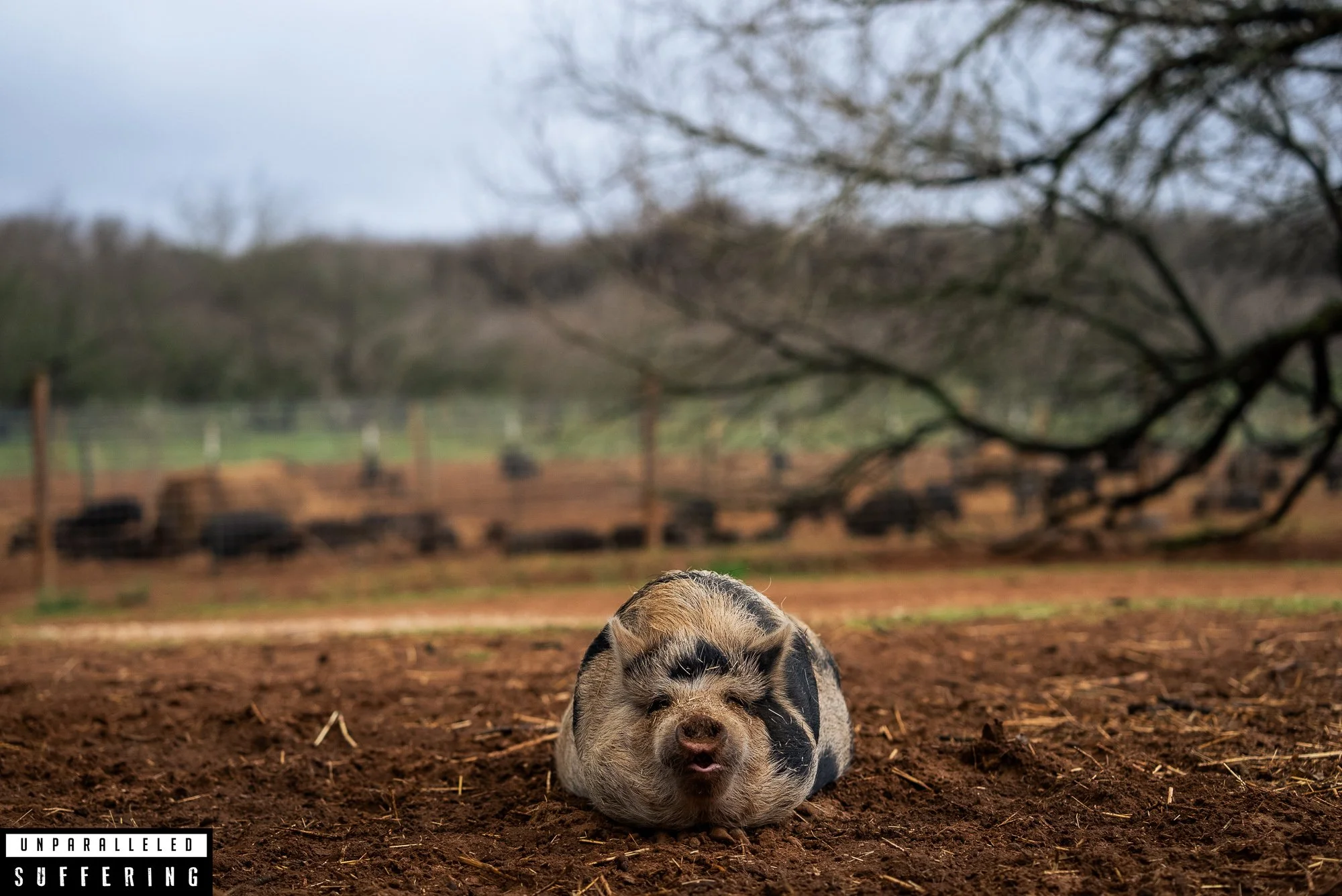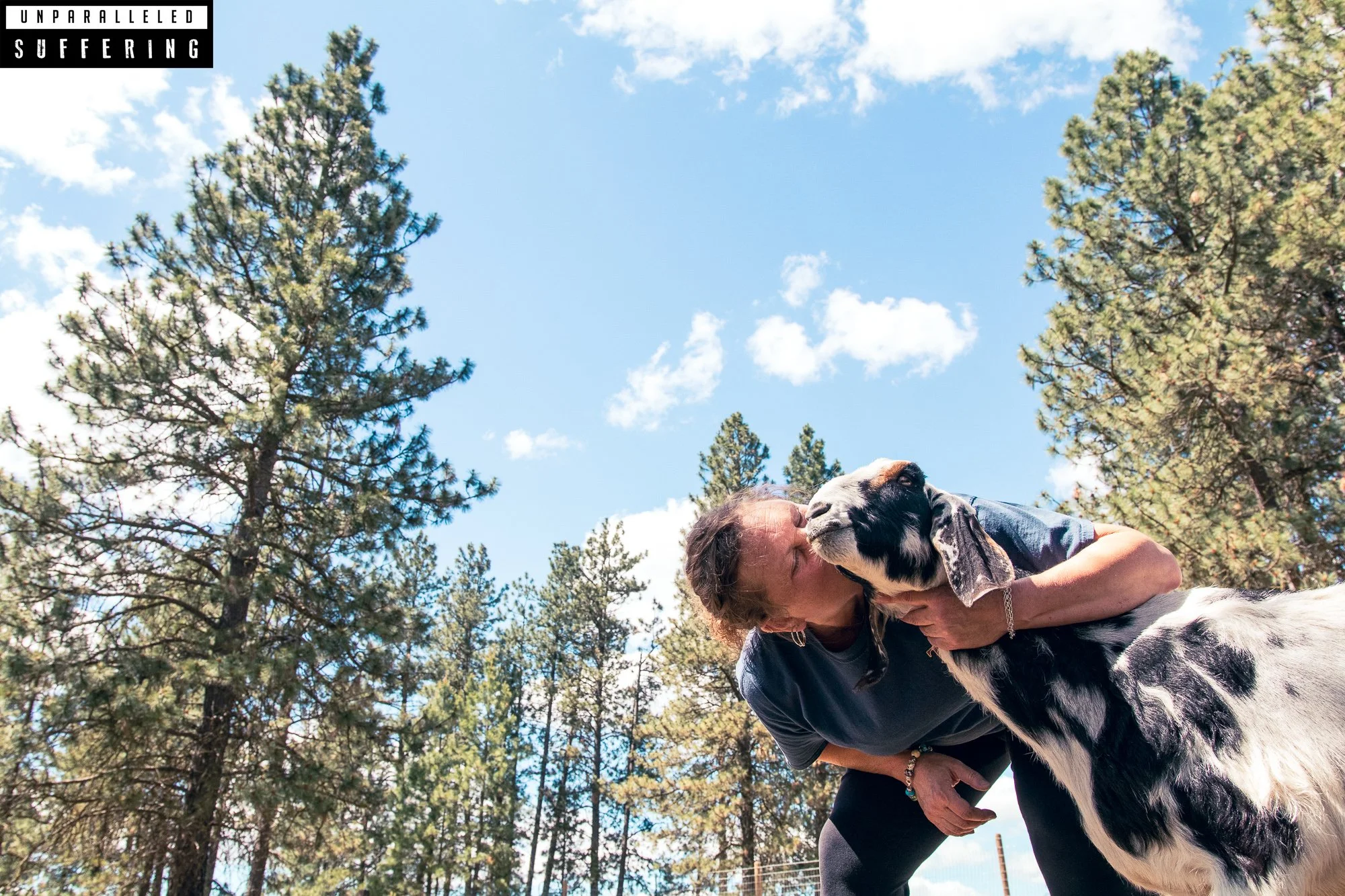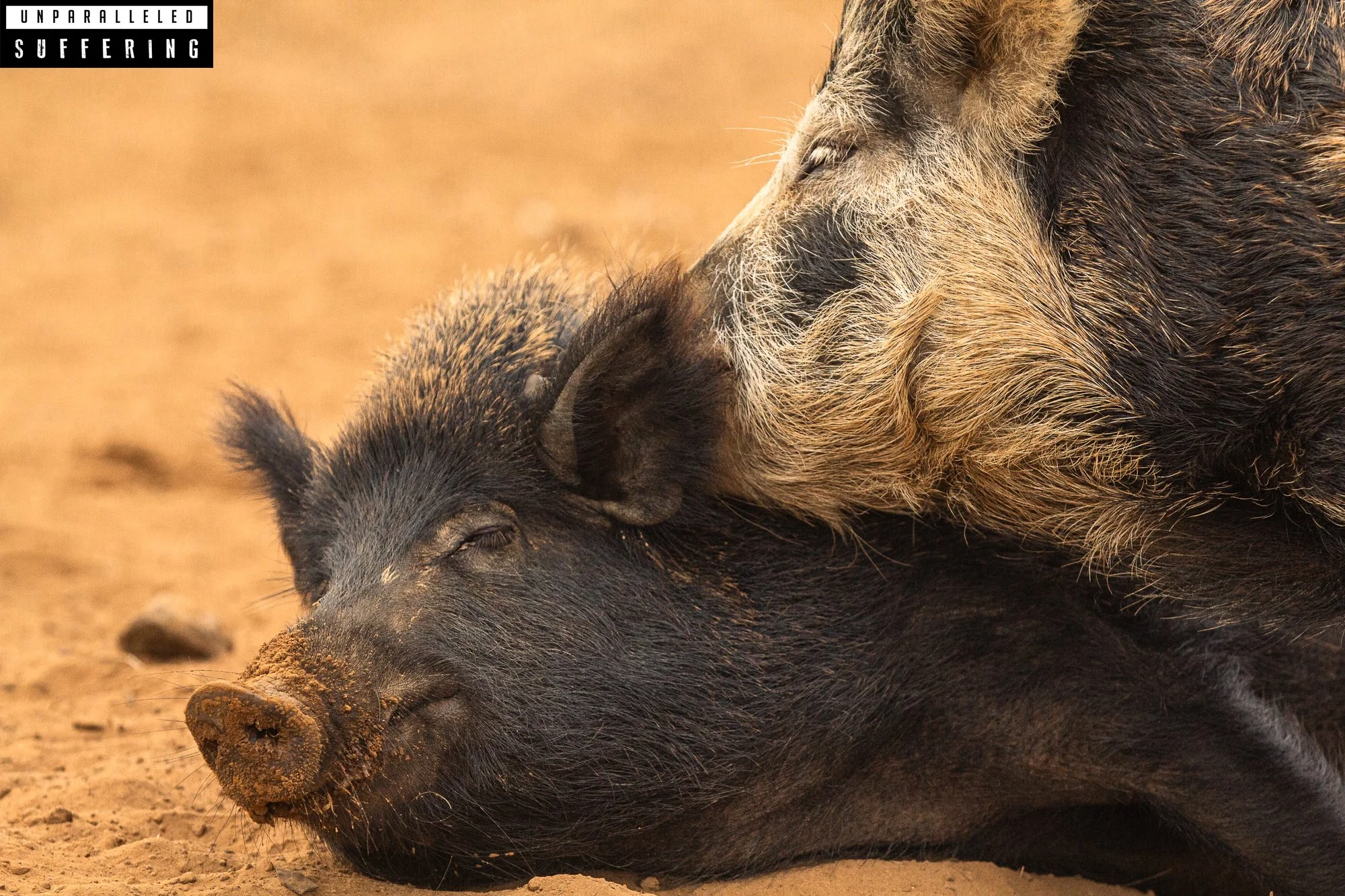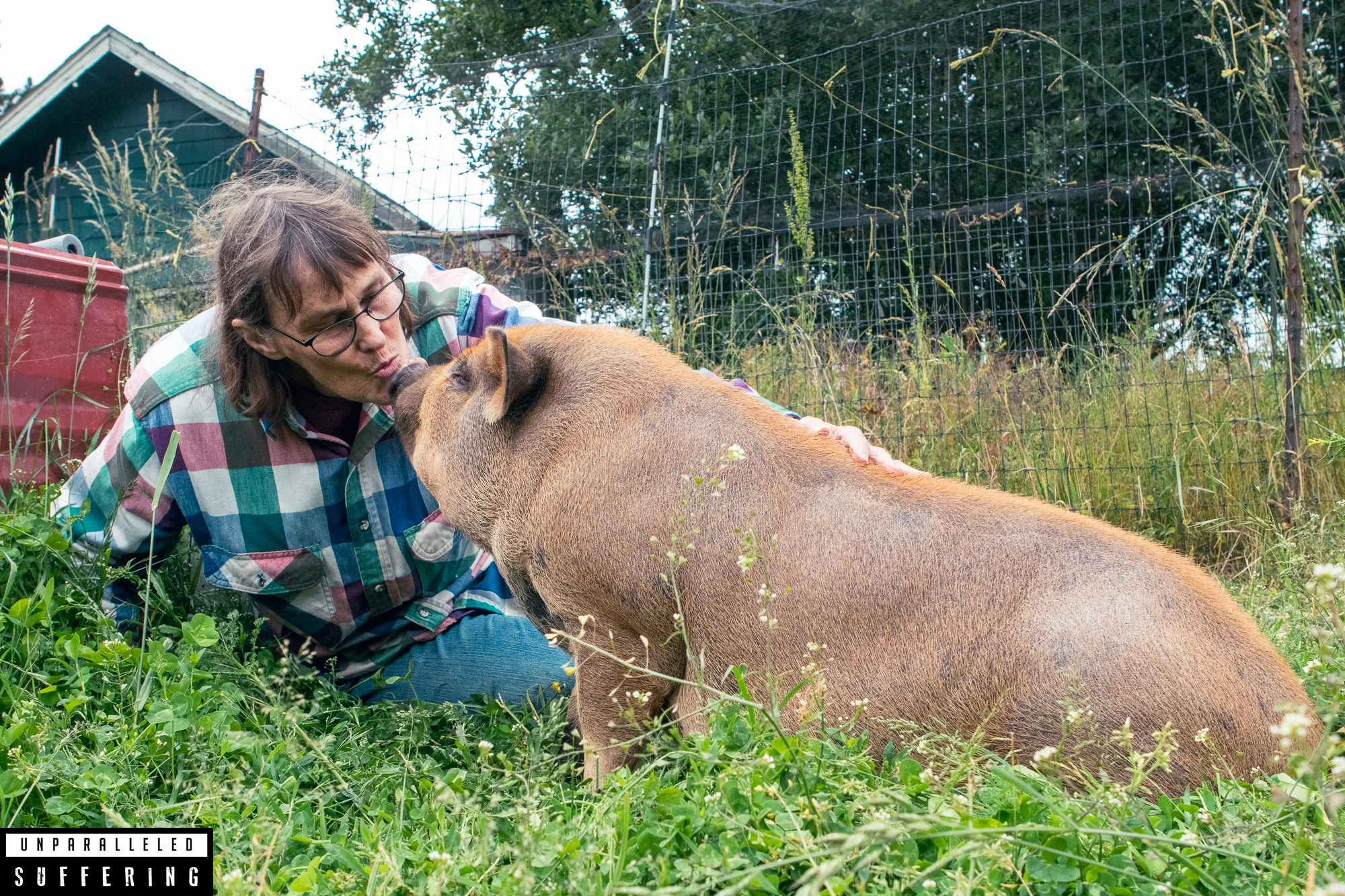Farmed Animal Sanctuaries
A Better way is possible.
Sanctuary: A place of refuge and protection.
-Merriam-Webster Dictionary
On sanctuaries, individual animals often have storied lives marked by abuse or neglect. They are the survivors whose suffering would have been ignored and whose lives would have been in vain, had it not been for sanctuaries and rescuers. Sanctuaries challenge visitors with a new paradigm for understanding animals. They present their adopted and rescued residents as they are and ask us to observe and interact with them as unique individuals, rather than by the norms, assumptions, and prejudices imposed upon their species by thousands of years of exploitation. For sanctuaries, animals are in fact an end in themselves, rather than a means to an end.
— Robert Grillo
Direct experience conveyed through storytelling, photographs, video footage, and sanctuary visits provides an informed challenge to the misinformation about these animals spread by the animal farming industry intent on convincing people that chickens, cows and others so categorized have nothing in common with “wild” animals or “our pets,” and that farmed animals are merely passive, brainless “food” in the making.
-Karen Davis (United Poultry Concerns)
The best part about running a sanctuary is seeing individuals thrive after a life of hell. It’s seeing how animals should have always been treated and making sure you give that to them. When animals come to the sanctuary they often get here with a lot of trauma and are visibly sad, but after some time you can see them shed their trauma away, become content, and enjoy simple things like laying down and relaxing in the sun. Waking up and seeing happy animals? Nothing better.
— Lauren Lock (Fawn’s Fortress)
With animals, we share far more than we don’t share.
When we empathize with and connect with animals, we expand our social circle beyond our species.
-Aysha Akhtar
Those who have visited a sanctuary can attest to how fundamentally different the experience is from visiting a farm. On a sanctuary, animals are recognized as self-aware individuals who, like human beings, have unique personalities—a complex of experiences, interests, emotions, thoughts, memories, likes, dislikes, desires, fears, friends, loves, losses, joys, and pains. Property owners are replaced with guardians who provide a caring environment that empowers them with the confidence to more authentically express their true selves. And sanctuaries, while still imperfect, manmade environments, strive to provide their inhabitants with as natural a life as possible. People can walk away from sanctuaries with a “breakthrough” understanding. They recognize that these individuals are vastly more expressive, more sophisticated than their repressed counterparts on farms. They see much of themselves in these animals. They realize that the stereotypes they’ve come to believe all of their lives are based on an inherent and deeply entrenched cultural prejudice.
— Robert Grillo
